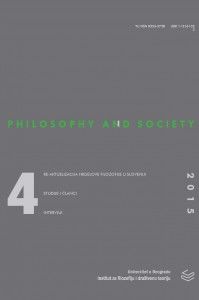Science et philosophie chez Gilles Deleuze
Science and philosophy at Gilles Deleuze
Author(s): Igor KrtolicaSubject(s): Philosophy, Epistemology, Contemporary Philosophy, Philosophy of Science
Published by: Institut za filozofiju i društvenu teoriju
Keywords: Deleuze, philosophie, science, dialectique, Idée; problème
Summary/Abstract: Deleuze will not wait until he had completed his works to frame and formulate a theory on the relation between philosophy and science. The first articulations of this question are already present as early as the 1950s and 1960s in the studies on Bergson and Nietzsche, and then in Difference and repetition as well as in The Logic of Sense. It is also true that this question will be specifically developed in 1991 in What Is Philosophy? But throughout his work, the main thrust would proceed. This issue, it seems, comprises three main aspects: in the first place, in a polemic against the neo-Kantian epistemological legacy, it primarily consists in denying the critical definition of philosophy as being a ‘reflection on scientific knowledge’ to replace it by a conception drawn from Bergson’s expressionist ontology that places science and philosophy on both sides of the being; secondly, in an attempt to restore the concept of dialectics, it consists in making the dialectics of ideas the communal sphere of both science and philosophy; thirdly, aiming to specify every form of thinking, it consists in shaping how each expresses its ideas or its problems with its own signs. These three aspects, it seems, can frame the overall conception Deleuze formed of the link between science and philosophy. We shall successively analyze them, exclusively considering the first period of Deleuze’s work, which is to say the pre-guattarian publications.
Journal: Filozofija i društvo
- Issue Year: 26/2015
- Issue No: 4
- Page Range: 949-973
- Page Count: 25
- Language: French

